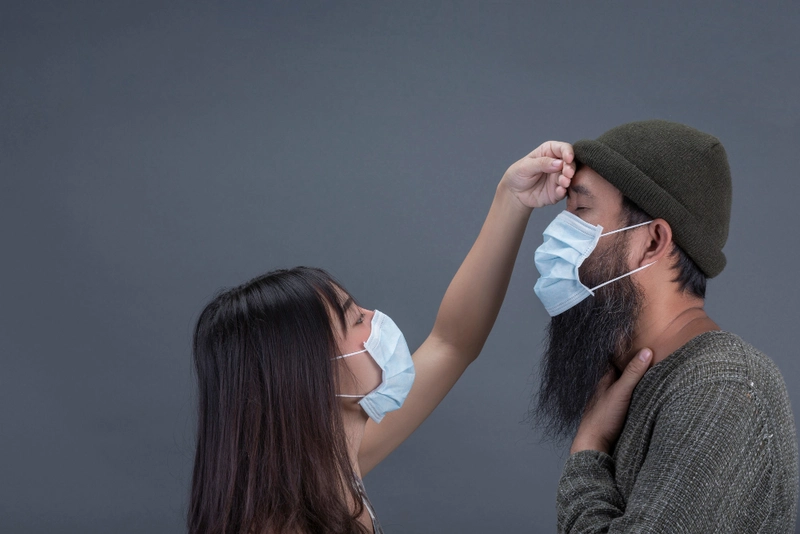- Published on: Jul 24, 2024
- 3 minute read
- By: SecondMedic Expert
Why Dengue Fever Causes Low Platelet Counts And How To Manage It
Dengue fever, a mosquito-borne viral infection, has become a significant public health concern in many tropical and subtropical regions. One of the hallmarks of severe dengue is a drop in platelet count, which can lead to serious complications. Understanding why dengue fever causes low platelet counts and how to manage this condition is crucial for anyone living in or traveling to affected areas.
Understanding Dengue Fever
Dengue fever is caused by the dengue virus, which is transmitted primarily by Aedes aegypti mosquitoes. The virus has four distinct serotypes (DENV-1, DENV-2, DENV-3, and DENV-4). Infection with one serotype usually provides lifelong immunity against that specific type, but only partial and temporary immunity against the others. Subsequent infections with a different serotype increase the risk of severe dengue, including dengue hemorrhagic fever (DHF) and dengue shock syndrome (DSS).
Why Dengue Fever Causes Low Platelet Counts
Platelets are small blood cells that play a crucial role in blood clotting. A normal platelet count ranges from 150,000 to 450,000 platelets per microliter of blood. Dengue fever often leads to a significant drop in platelet count, a condition known as thrombocytopenia. There are several reasons for this:
1. Bone Marrow Suppression: The dengue virus can infect and impair the bone marrow, which is responsible for producing blood cells, including platelets. This leads to reduced platelet production.
2. Increased Platelet Destruction: The virus and the immune response it triggers can increase the destruction of platelets. The body’s immune system mistakenly targets platelets, thinking they are infected cells.
3. Increased Utilization: In severe dengue, there is increased leakage of plasma from the blood vessels. To combat this, the body uses up more platelets for clotting, leading to lower counts in the bloodstream.
4. Splenic Sequestration: The spleen may sequester or hold onto more platelets than usual in dengue fever, reducing the number of platelets circulating in the blood.
Symptoms of Low Platelet Count
A low platelet count can lead to several symptoms, which may vary in severity:
- Easy bruising
- Petechiae (small red or purple spots on the skin)
- Bleeding gums or nosebleeds
- Blood in urine or stools
- Heavy menstrual bleeding
- Fatigue and weakness
In severe cases, internal bleeding and shock can occur, which are life-threatening conditions requiring immediate medical attention.
How to Manage Low Platelet Counts in Dengue Fever
Managing low platelet counts in dengue fever involves several strategies aimed at supporting the patient until their body recovers. Here are some key approaches:
1. Hydration
Maintaining adequate hydration is crucial. Fluids help maintain blood volume and support overall bodily functions. Oral rehydration solutions, coconut water, and plain water are often recommended. In severe cases, intravenous (IV) fluids may be necessary.
2. Monitoring Platelet Counts
Regular monitoring of platelet counts is essential to assess the severity of thrombocytopenia. This helps healthcare providers decide on the necessary interventions and monitor recovery.
3. Medications
There are no specific antiviral medications for dengue. However, supportive care includes:
Acetaminophen: To reduce fever and relieve pain. Avoid nonsteroidal anti-inflammatory drugs (NSAIDs) like ibuprofen and aspirin, as they can increase the risk of bleeding.
Platelet Transfusions: In cases of very low platelet counts or significant bleeding, platelet transfusions may be necessary.
4. Rest and Nutrition
Adequate rest and proper nutrition support the body's recovery. A balanced diet rich in fruits, vegetables, and lean proteins can help maintain energy levels and support immune function.
5. Avoiding Certain Foods and Activities
Patients with low platelet counts should avoid activities that can increase the risk of bleeding, such as contact sports. Additionally, foods that may thin the blood, like garlic and ginger, should be consumed in moderation.
6. Natural Remedies
Some natural remedies are believed to help increase platelet counts, although scientific evidence is limited. These include:
Papaya Leaf Extract: Some studies suggest that papaya leaf extract can help increase platelet counts.
Pomegranate and Kiwi: These fruits are rich in vitamins and antioxidants that support overall health.
Preventing Dengue Fever
Preventing dengue fever is the best way to avoid complications like low platelet counts. Preventive measures include:
Mosquito Control: Eliminate standing water around your home, use mosquito repellents, and install screens on windows and doors.
Protective Clothing: Wear long-sleeved shirts, long pants, socks, and shoes when outdoors.
Vaccination: In some regions, a dengue vaccine is available and recommended for individuals who have had a previous dengue infection.
Conclusion
Dengue fever and its complications, such as low platelet counts, pose significant health challenges in many parts of the world. Understanding the reasons behind thrombocytopenia and implementing effective management strategies can help mitigate the risks and support recovery. By taking preventive measures and staying informed, individuals can reduce their risk of dengue fever and its potentially severe consequences.
Read FAQs
A. Dengue fever causes low platelet counts due to bone marrow suppression, increased platelet destruction, increased utilization for clotting, and splenic sequestration. The dengue virus affects the body's ability to produce and maintain adequate platelet levels.
A. Managing low platelet counts involves staying hydrated, monitoring platelet levels, taking acetaminophen for fever and pain, resting, eating a nutritious diet, and avoiding activities and foods that increase bleeding risk. In severe cases, platelet transfusions may be necessary.
A. Signs of a low platelet count include easy bruising, petechiae (small red or purple spots on the skin), bleeding gums or nosebleeds, blood in urine or stools, heavy menstrual bleeding, fatigue, and weakness. In severe cases, internal bleeding and shock may occur.
Our Services
Request A Callback
Recent Posts
Seasonal Flu vs Covid-19: 2025 Comparison
Jun 25,2025
Joint Pain in Rainy Weather – What Doctors Say
Jun 24,2025
Impact of Junk Food on Hormonal Balance
Jun 19,2025










